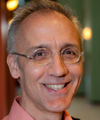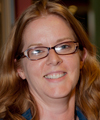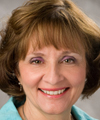Each year, the George R. Brown Award for Superior Teaching honors top Rice professors as determined by the votes of alumni who graduated two and five years ago. This year nine faculty received the award. Rice News asked the winners to pick their favorite class to teach. Below are their answers.
Michelle Hebl
Professor of psychology and management
“Probably Social Psychology. I really enjoy teaching all of my classes, but there is a lot of very relevant information to college students’ daily lives in Social Psychology. It is rewarding to share the passion I have with them and see them have ‘aha’ moments when they learn there is actually a name to a phenomenon that they have observed in themselves or their roommates.”
Steven Cox
Professor of computational and applied mathematics
“I love being part of the transformation from anxious novice to confident creator that plays out over CAAM 210.”
James Tour
The T.T. and W.F. Chao Professor of Chemistry, professor of mechanical engineering and materials science and professor of computer science
“Chemistry 210, Wild Topics in Chemistry and Nanotechnology. There is no textbook that I am obliged to complete. I can just go into class and speak about whatever topic is on my heart, most often related to my own research or the latest company with which I am dealing. So I can bring experiences from the active trenches into the classroom without the typical decade or more delay it takes for topics to reach the textbooks.”
Maria Oden
Professor in the practice of engineering and director of the Oshman Engineering Design Kitchen
“My favorite classes to teach are the BIOE 451-2 and GLHT 451-2. These are the capstone design classes for bioengineering and global health technology programs. Why? Because I have the privilege of watching amazing Rice University students use their skill, creativity and ingenuity to solve real challenges and often produce technologies that can truly help with health care delivery in the U.S. and abroad. Often the students start the year uncertain if they will be able to be successful and finish the year with confidence that they have created a successful product.”
Bridget Gorman
Associate professor of sociology
“My favorite class to teach is Research Methods. I really like helping students learn how you ‘do’ sociology. It’s different from any other class I teach, since the students spend the semester figuring out how you take a research idea and develop a study design to test it.”
Alma Novotny
Lecturer of biochemistry and cell biology
“I have two favorite classes — Immunology, which I teach to 100 or more undergraduate premeds for the Biochemistry Department, and Plagues and Populations, which I teach to about a dozen adults in the Masters in Liberal Studies (MLS) Program in the School of Continuing Studies. The undergrads are motivated to succeed and well-prepared, and I can discuss difficult content without a lot of groundwork. I know that anything they take from my course will be knowledge that will support the medical care of lots of people for years to come. On the other hand, there are a lot of (students), and I don’t get to know them as well as I’d like or to act proactively on their behalf. My MLS students, on the other hand, are there strictly for the love of learning. The smaller class gives me more flexibility to design projects, and the nature of the program allows me greater freedom to pursue topics in depth. Both groups of students force me to keep current, clarify my ideas, think on my feet and try to anticipate what will be important next year, but in very different ways. I feel totally privileged to teach at Rice.”
Paul Stevenson
Professor of physics and astronomy
“My favorite course – the one I am most notorious for – would have to be PHYS 301. It is a course in classical mechanics, with a heavy emphasis on problem solving. The aim is not just to teach a certain body of material but also to give lots of practice in the art of solving physics problems – translating words into mathematics, efficiently doing the calculations, checking and interpreting the result in as many ways as possible. Does the answer have the right dimensions? (If not, it’s not just wrong; it’s nonsense!) Does it pass various sanity checks? Does it reduce to the right result in various simple limiting cases? The fun comes from seeing the connections between simple physical intuition and complicated mathematical formulas – something that can come as a revelation to students.”
Jose Aranda
Associate professor of English and chair of the departments of Hispanic studies and French studies
“One of my favorite classes to teach is one I developed with Dr. Richard Tapia of CAAM. In 2005, Dr. Tapia was named University Professor, and it came with broad teaching privileges. I knew that Dr. Tapia was passionate about Chicano/a studies, so I approached him about co-teaching a course on the Chicano Movement through the English Department. The course was English 371, Survey of Chicano/a Literature: The Chicano Movement and the Forging of the La Raza. It was a wonderful experience of merging the disciplinary habits of two very differently trained people toward a discussion of the origins and consequences of the Chicano movement. We co-taught the course twice, and I taught the course once more on my own, culminating in the spring of 2008 with the Democratic primary contest between Hilary Clinton and Barack Obama as a backdrop to our political discussions of the 1960s and 1970s. Literature and history coexisted that spring with discussions of ethics, politics and the right to organize against injustice. To us in the classroom, it was both an affirmation of the past and a signal for future engagement when the Obama campaign adapted Delores Huerta’s slogan for the United Farm Workers of “¡Sí se puede!” to “Yes, we can!” It’s not often you get to experience a class come full circle into our daily lives. It’s an awesome feeling to share with your students.”
Roberta Anding
Lecturer of kinesiology
Anding teaches HEAL 103, which examines concepts underlying the science of nutrition: food composition, calories and needs for energy, special nutrients and nutritional deficiencies.











Leave a Reply